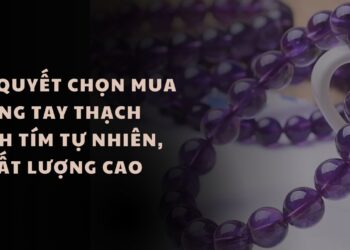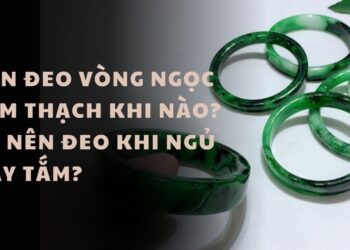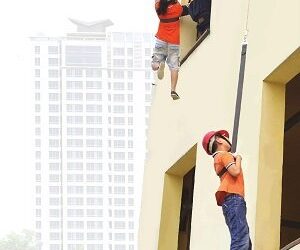Japanese Title: Haikyuu!!
Related: Haikyuu!! Second Season (included in review)
Similar: Free! Iwatobi Swim Club
Kuroko’s Basketball
Major
Prince of Tennis
Watched in: Japanese
Genre: Sports Comedy Drama
Length: 25 episodes (season 1), 25 episodes (season 2), 2 OVA + more on the way
Positives:
- High-energy characters and competition.
- Varied strategies and deep plays.
- Good production values.
- Well-woven humour.
- Friendly to the volleyball illiterate.
Negatives:
- There’s no story beyond the sport.
(Request an anime for review here.)
For the next step on my sports anime journey, I went with the highly recommended Haikyuu!! (The double exclamation triggers me. It’s simply not right!) Never watched a game of volleyball in my life, but let’s go!
In his first volleyball match, middle-schooler Hinata gets stomped. And I mean stomped, worse than Germany versus Brazil (7-1 never forget). He decides the enemy ace, Kageyama, is his new rival, works hard, and gains entry in Karasuno High School, a good institute for volleyball, hoping to rise up and defeat Kageyama on the big stage. However, Kageyama took a downturn in recent times, rejected from the top volleyball school, and has ended up in the same school as Hinata. Rivals become teammates.
Hinata is a fantastic character. He may be a midget – people often forget he’s there – but he sure can jump. His energy and enthusiasm are infectious, except before matches, where he gets so nervous that telling him not to be nervous gives him the runs. Interestingly, despite falling into the typical shounen protagonist archetype (genki underdog) like Naruto and Luffy, Hinata is one of my favourites in Haikyuu. Usually, the cheerful protagonist is bland compared to the varied supporting cast. Hinata succeeds, I feel, because the underdog status is genuine. He doesn’t have the magic ability to win when the plot needs it. He has his role in the team as a Spiker and doesn’t overshadow the rest of the cast. ‘Less is more’ in action.
Opposite him, Kageyama is obsessed with winning. Not in the same way as Hinata, but in a manner that destroys any hope of success, as he berates his teammates for the slightest mistake. If he were company CEO, he would be over everyone’s shoulder on all twenty floors of the building at all times. And as Hinata’s rival, he’s tall – naturally. He plays the Setter position – sets up the ball for the Spiker.
First, the boys must learn to get along as teammates; otherwise, they can forget victory, let alone a championship. Their only chance at breaking the barriers is the captain. There’s also Noya in the Libero position (defensive specialist), a noisy fellow and the only guy shorter than Hinata – another great character. In fact, every character on the team is solid. Again, I think it comes back to the balance between Hinata and everyone else – the supporting cast doesn’t feel like they exist solely for him.
The funniest character is Tanaka, a guy who wants to look and act like a hard-ass intimidating newbies in a comical manner until the captain reins him in. Humour is never far away in Haikyuu and I worried about whether it could get serious enough when needed. Now, a super heavy moment hasn’t occurred in the two seasons so far, but when there has been weight in a scene, the tone has given just enough ‘serious’ for me to believe it.
As for the sport itself, Haikyuu does an excellent job illustrating the gameplay for anyone to follow, even the uninformed like me. The story also isn’t bogged down with explanation either, unlike battle anime. The strategies have variety, character psychology plays a big part, and everyone has strengths and weaknesses on court. The crowd even features Japan’s crazy coordinated chants!
The best aspect of the sport is its understanding of what it means to lose and the effect a loss has on players. This is what distinguishes Haikyuu from run-of-the-mill competitive anime like Food Wars. The writer doesn’t treat the characters like infants locked into a safe space, and knows that losses provide the greatest opportunities for learning.
If Haikyuu could find room for improvement, it would be outside the volleyball. There isn’t any story beyond the sport. It’s all about practicing volleyball, studying volleyball, and playing volleyball, which creates a lower ‘intensity’ ceiling than if there was more beyond volleyball. That’s not to say Hinata needs to come from some abusive home or live on the streets. It could be as simple as a romance affected by Hinata’s commitments to volleyball. Perhaps later seasons will introduce something.
Haikyuu is very “shounen” in its use of grandstand challenges, too many speeches, intense glares, over assignment of god-like titles to characters, and inspirational scenes. They aren’t realistic by any stretch. However, I have learnt to embrace them – you have to or there’s no way to enjoy hot-blooded sports anime.
After I finished Haikyuu, I watched a real volleyball match for the first time and it was phenomenal, probably one of the best matches in volleyball history (Women’s Japan versus China at the London Olympics – highly recommended). Japan even had someone shorter than Hinata playing Libero position! Haikyuu is the best shounen sports anime I have seen so far.
Art – High
Haikyuu is colourful like Hinata’s hair and sports great animation during the action. Simple, yet memorable character designs – expressive too.
Sound – High
Great acting brings this energetic cast to life and are even believable in otherwise unbelievable shounen dialogue. Good music, but nothing outstanding.
Story – High
A short but high jumping kid works with his team to reach the apex of high school volleyball. Though Haikyuu has little story outside of the volleyball, the conflict and development within the sport itself is excellent.
Overall Quality – High
Recommendation: Try it/must for sports fans. If you’re a sports anime fan, Haikyuu is necessary, while I urge others to give a try, even if disinterested in volleyball.
(Request reviews here. Find out more about the rating system here.)
Awards: (hover over each award to see descriptions; click award for more recipients)
Positive:
Negative: None






